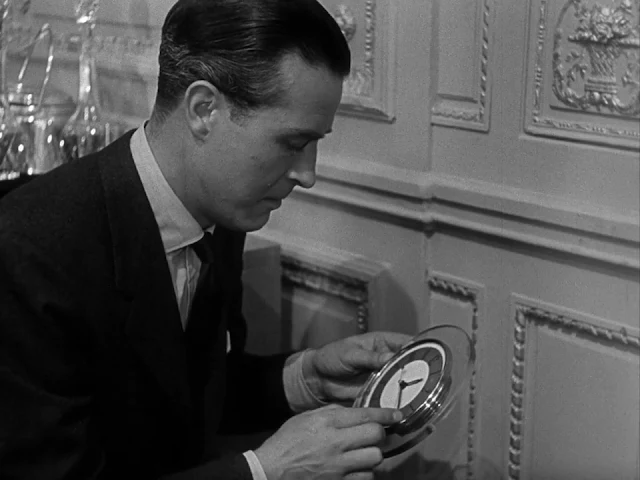 |
| Harpo Marx, Chico Marx, Zeppo Marx, and Groucho Marx in Duck Soup |
The best of the Marx Brothers' movies, largely because it's nonstop nonsense. There are no breaks for a harp solo by Harpo or cute piano playing by Chico. There's no "real-life" romantic subplot like the ones Irving Thalberg inserted into the movies the Marxes made when they moved over to MGM. (This was the last movie they made at Paramount.) The songs are all excuses for goofy production numbers. This is the one with Harpo and Chico running a peanut stand and tormenting Edgar Kennedy as the lemonade seller. This is the one with the mirror routine involving Groucho and Harpo (and eventually Chico) in nightshirts and nightcaps. This is the one in which Groucho (aka Rufus T. Firefly) exhorts the troops with "Remember, you're fighting for this woman's honor, which is probably more than she ever did." (The temptation to quote is irresistible.) The woman in question is, of course, Margaret Dumont, sailing stately through the turbulent sea of Groucho's puns, insults, and double entendres. For once she has a match in enduring the brothers with aplomb: Louis Calhern takes everything they can dish out and keeps plowing ahead. Duck Soup was not particularly well-received at the time, but it has grown in favor since the sentimentality that weighed down later films like A Night at the Opera (Sam Wood, 1935) and A Day at the Races (Wood, 1937) has gone out of style. If I had to pick the funniest film ever made, and thank god I don't, it might be this one.
























